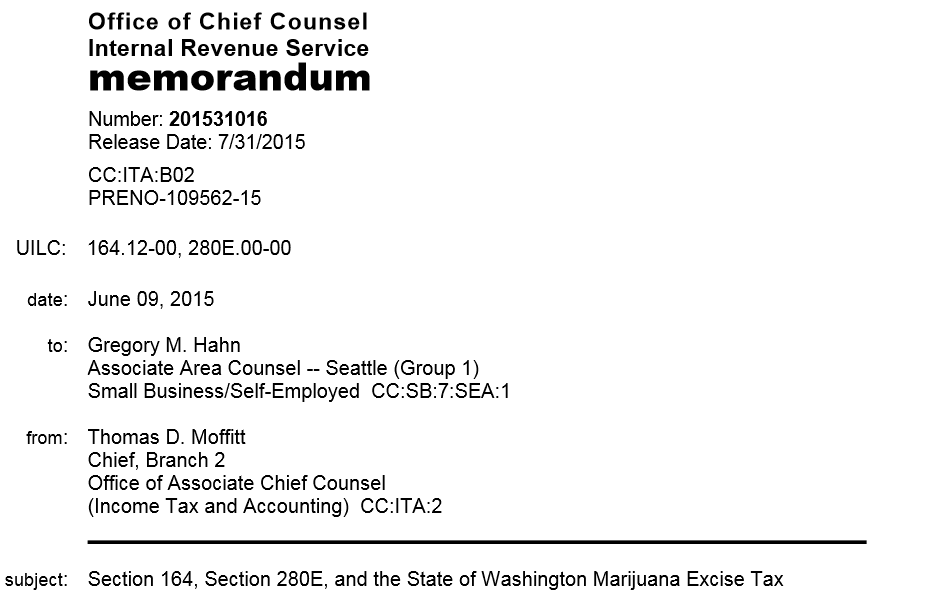“A taxpayer who paid the State of Washington marijuana excise tax should treat the expenditure as a reduction in the amount realized on the sale of the property,” says the Office of Associate Chief Counsel (Income Tax and Accounting).
Per the memo from Thomas D. Moffitt,Chief of Branch 2 of the Office of Associate Chief Counsel,
“We interpret the State of Washington marijuana excise tax to be a tax paid or accrued in connection with the disposition of property by a trade or business. Accordingly, pursuant to § 164(a), a taxpayer who paid the marijuana excise tax should treat the expenditure as a reduction in the amount realized on the sale of the property rather than as either a part of the inventoriable cost of that property or a deduction from gross income. Though § 280E prohibits deductions and credits for these businesses, this excise tax is neither a deduction from gross income nor a tax credit. Consequently, § 280E does not preclude a taxpayer from accounting for this excise tax as a reduction in the amount realized on the sale of the property.”
Read the full document here: Excise Tax Relief Memo

